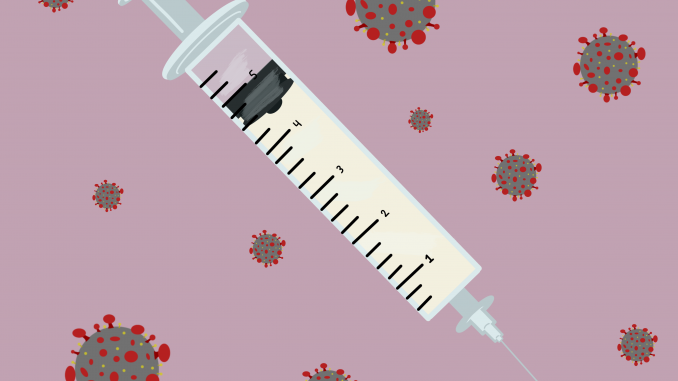
One year into the pandemic, we are in a race against time again.
Two vaccines created by Pfizer-BioNTech and Moderna are approved by the United States Food and Drug Administration, but new COVID-19 variants may throw a wrench in Philadelphia’s less-than-perfect vaccination plan.
Seven variants have now been detected in the U.S and are believed to have originated domestically, The Hill reported on Monday.
These are in addition to three international variants, originating from the United Kingdom, South Africa and Brazil. They are more transmissible than the original strain of SARS-CoV-2, the virus that causes COVID-19. While the authorized vaccines are believed to be effective against the U.K. and Brazilian mutations, they may be slightly less effective against the South African variant, CNN reported.
Dr. Anthony Fauci, President Joe Biden’s chief medical advisor and director of the National Institute of Allergy and Infectious Diseases, said the variants will prove a challenge to ending the pandemic, but even moderate protection against COVID-19 is significant, United Press International reported.
Although many students are still months away from being eligible for their first dose, those who have been offered either of the two available vaccines should receive it before COVID-19 continues to adapt.
If more people are vaccinated, the virus will have fewer places to infect and mutate, said Jason Gallagher, a clinical professor in the School of Pharmacy.
“The more antibodies are in the population, the less virus there will be,” Gallagher said. “The population it spreads in the most is young adults because they’re the most social. The reason this is moving through the population so intensely is because no one’s immune.”
Philadelphia is currently in phase 1B of its vaccination plan, which includes some essential workers, seniors over the age of 75, people with certain medical conditions and health care workers eligible in phase 1A, Philly Voice reported.
Phase 1C will include essential workers not eligible in 1B and people ages 65 to 74 years old. College students who do not fall under one of these categories will not be vaccinated until phase 2, the last phase, according to the Philadelphia Department of Public Health.
It will take an estimated 75 percent of people in the U.S. to be vaccinated in order to achieve herd immunity, a threshold at which enough people are immune that the virus can be contained, CNBC reported.
Currently, 10 percent of the population has received their first dose, and only three percent has received both, Business Insider reported.
The way we communicate about vaccination is important, said Sarah Bass, a social and behavioral sciences professor and director of Temple’s Risk Communication Laboratory.
“Vaccination is one of the number one public health tenets,” Bass said. “In the case of COVID, because it’s so infectious, a vaccine is one of the only sustainable ways to control the spread of the disease.”
On Jan. 15, Susan VonNessen-Scanlin, associate dean of clinical affairs and interprofessional education at the College of Public Health, emailed students and faculty informing them they were eligible to receive the first dose of the Moderna vaccine on Jan. 20, Jan. 21 or Jan. 27 at the Bell Building, The Temple News reported.
I scheduled my vaccines right away for Jan. 27 and Feb. 24.
Rachel Rakowski, a senior public health major, was among one of the first to receive the vaccine on Jan. 20. She is completing a hybrid internship, she said.
“I feel more comfortable volunteering in higher exposure situations that need support right now, but it also allows me the peace of mind that I’m unlikely able to spread it to loved ones who might not have the immune response to survive,” Rakowski said.
On Jan. 19, the College of Public Health announced that only 50 percent of those who were offered the vaccine signed up to receive it.
While 700 “clinically facing front-line faculty, staff and students” had been vaccinated by Jan. 25, the email urged students who hadn’t signed up to do so.
Moraine Kisenda, a senior biology major, volunteers for the College of Public Health’s vaccine clinic in addition to working at her in-person internship. She was vaccinated on Feb. 1, she said.
“I’m one step closer to protecting myself and others by performing an effective preventative practice, and it was a historical moment I had a chance to partake in,” Kisenda said.
The university should strive to vaccinate 100 percent of eligible students. Students who do not have access to the vaccine can prevent the spread of the variants just like the original strain by social distancing, wearing a mask and washing their hands.


Be the first to comment